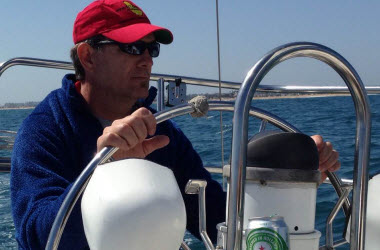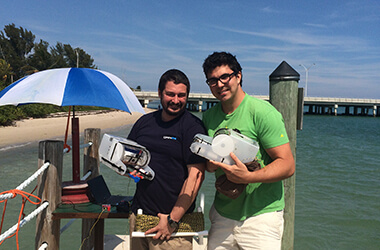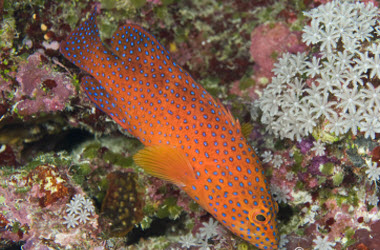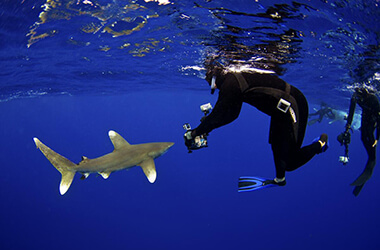November 22, 2016
Field work is romanticized in our minds as kids, teens and in our early college years, but what is it really like out there? I’ve spent weeks and months in the field in various places around the world in good and bad weather conditions, and the one common theme that shines through - teamwork.
There are amazing wildlife encounters to be had in the field; animals that you may not have access to as a non-scientist. There are also the remote places that you will have access to. Parts of the planet you may only get to visit once in a lifetime, places where the tour guides don’t or can’t go. While the excitement of venturing into these places and the hope of having these encounters may be the driving force behind your desire to be a field scientist, you will find that in time your fondest memories are those formed with your teammates in the field.
Here’s an example of a typical marine scientist’s field day.
- Wake up early, between 5-6am, and have breakfast with the team
- Discuss the day's objectives, goals, and expectations over bad coffee
- Check tides, and review boat launch and dive times
- Find out one of the boats engines isn’t working - reevaluate strategy for the day until it’s fixed
- Lose a team member for the day to deal with engine troubles
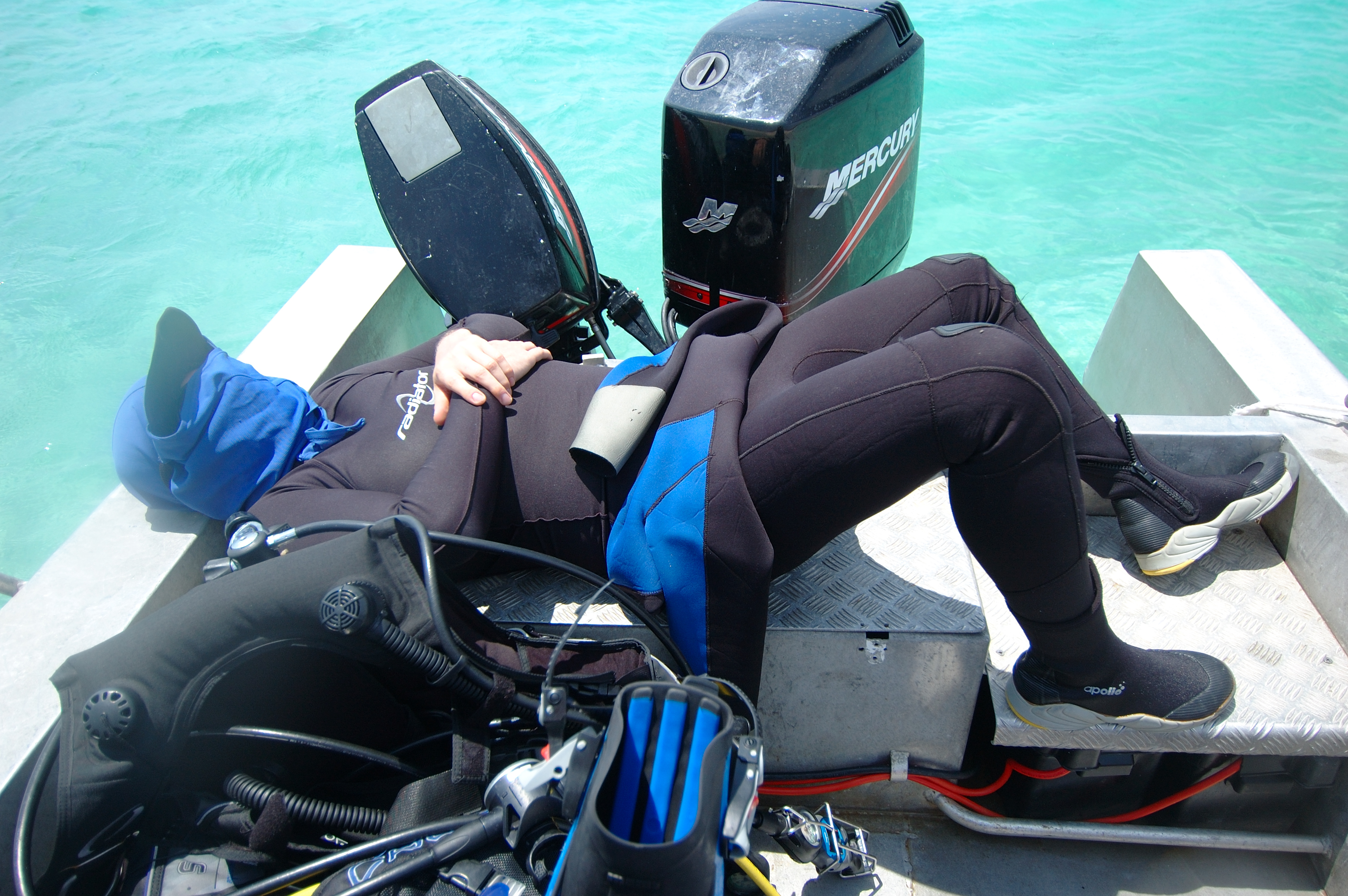
- Assemble dive gear and load boat
- Head out for first dive and complete tasks, minus one team member
- Back to base to fill tanks, upload data, transcribe notes, while staying in your wet wetsuit
- Get ready for dive two (still in wet wetsuit!)
- Find out supplies are low, and now we’re skipping lunch until more supplies arrive
- Despite hunger, go on second and third dives
- Head back to base to transcribe, unpack boat and start collating the day's data, still in wet wetsuit
- Other boat still not working, whole team goes and helps
- 4 hours later boat is fixed, no dinner left as volunteers and field staff ate it all, and go to bed hungry
- Laugh it off with team
- Go to bed, waiting for bad coffee in the morning
- Repeat…
Ultimately, field work is rarely a walk in the park. It is thwart with unknown events always on the horizon. These events become even more burdensome the more remote you are, unable to find the tools you need to fix said unforeseen event.
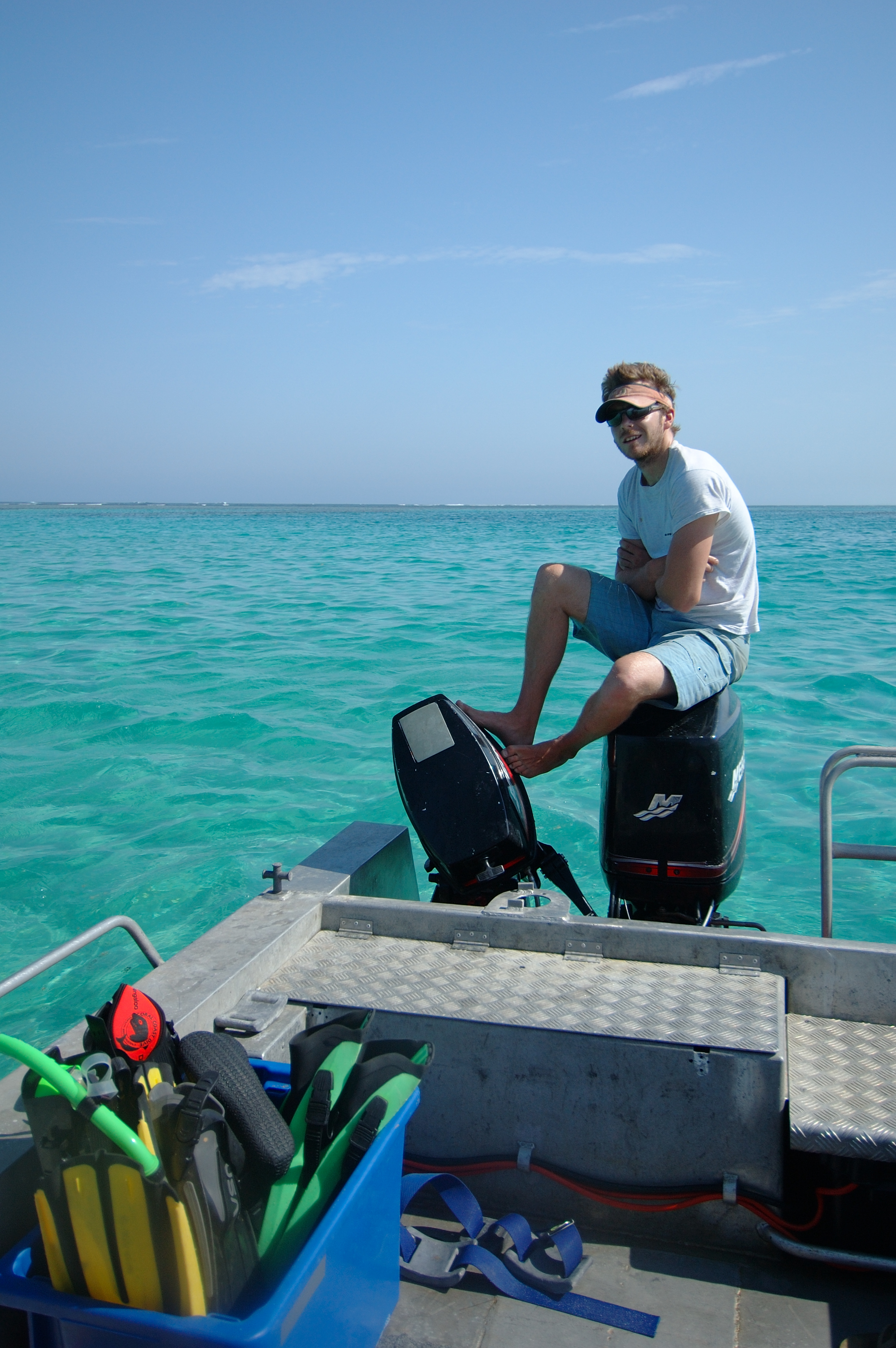
I’m always asked about field science: How do I get involved? Where do I volunteer? How do I get a job? Well, there are a few things to think about.
First, show you are a team player. Afterall, everyone who wants to be a field scientist is passionate about science, so you need more than just a love of the ocean to get you through. Displaying and demonstrating that you are a team player is key.
Second, learn another skill aside from field science. For example, if you’ve done a course in outboard motor repair and maintenance, that will take you far. Can you fix a bilge pump? Change spark plugs, fix a winch or pulley system? Additionally, getting a boat operating license and your first aid certificates are great enhancements to your resume.
Do you like to cook? Learn how to cook for 10 or more people then perhaps you can help keep everyone well fed, and be the favorite team member on any trip!
Love logistics? Highlight your willingness to do all the less than fun things like checking all the gear is packed, both on the way out and back home. Making sure all the supplies are ordered, and everything is organized is key to a successful trip.
Always do the dishes, or at least offer, even if there are other paid staff there. In other words, help out regardless.
Remember, the goal of a field trip is all about coming home with a full data set. Our personal goals are far less important and the team’s level of effort defines the trip's success. Sure, you might go home exhausted, sleep deprived, and looking forward to your own bed, but you’ll wake that first morning home, longing to be back in the field with your team in no time.

